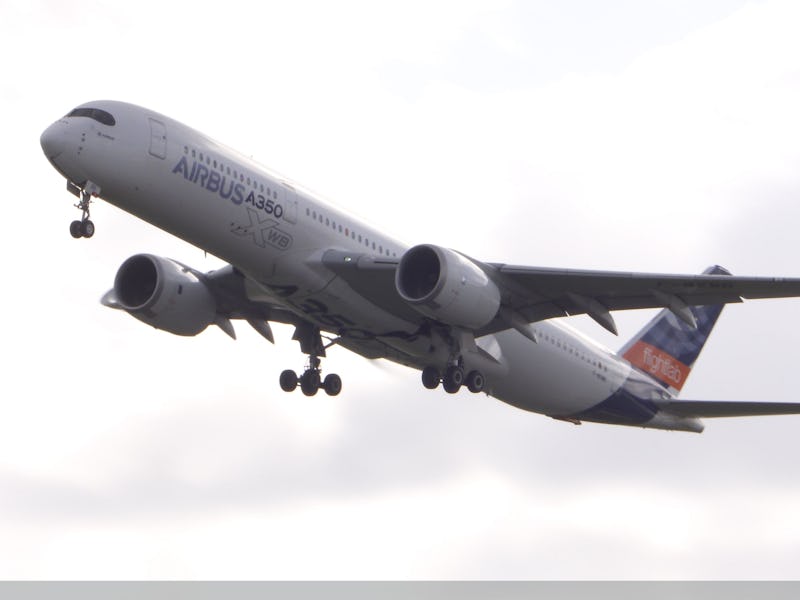Aviation’s biggest names take a critical step to make green air travel a reality
The biggest names in aviation are studying fossil-free fuel in commercial aircraft.

Some of the biggest names in aviation are teaming up to study greening one of the dirtiest parts of the transportation industry.
Four stakeholders are coming together to make 100 percent sustainable aviation fuel (SAF) — an industry term for carbon-friendly combustibles made from biofuels like vegetable oils and fats. The SAF needs to meet requisite aircraft emissions and performance to sustain commercial airline flight.
The stakeholders are:
- Airbus — the world’s biggest aircraft manufacturer
- Rolls-Royce — one of the biggest jet engine manufacturers which is no longer affiliated with the car company
- DLR — the German Aerospace Center, basically the German NASA
- Neste — a producer of sustainable aviation fuel
They are working together to test if sustainable aviation fuel (SAF) can be used to decarbonize the aviation sector.
What’s new — An Airbus A350-900 aircraft with Rolls-Royce Trent XWB engines affixed under the wings took off from Airbus’ testing facility in Toulouse, France earlier this week to test whether the 100-percent sustainable fuel would work with the A350. Results have not been released yet, but it appears the initial flight was successful.
Steven Le Moing, new energy programme manager at Airbus, says that getting efficient and clean SAF is a cornerstone of the company’s environmental efforts.
“Aircraft can currently only operate using a maximum 50% blend of SAF and fossil kerosene,” Le Moing says in a press release. “This exciting collaboration will not only provide insight into how gas-turbine engines function using 100% SAF with a view to certification, but identify the potential emissions reductions and environmental benefits of using such fuels in flight on a commercial aircraft too."
Here’s the background — Though all-electric aircraft like those from Joby Aviation are in active development, electric planes aren’t at all practical for long-distance flights like the trans-oceanic journeys the A350 is designed for. This means that if the aviation industry wants to be greener, ensuring that aircraft can fly on biofuels will be essential to sustainable long-distance travel for years to come.
Neste says that analysis shows using its 100 percent sustainable aviation fuel could reduce greenhouse gas emissions by as much as 80 percent when compared to traditional fossil-based jet fuel.
What’s next — Flight-emissions tests will start next month. To do that, a DLR chase plane will measure the emissions released from the A350 while it flies around on the sustainable fuel to compare the HEFA technology from Neste with more traditional fossil fuels.
This research will continue throughout 2021, with additional tests taking place on the ground to test the environmental impact of SAF on airport operations.
By the way, if you liked this article, you’ll love my weekly car review newsletter PRNDL. Click here to subscribe for free on Substack. I’ll even answer your new car questions!